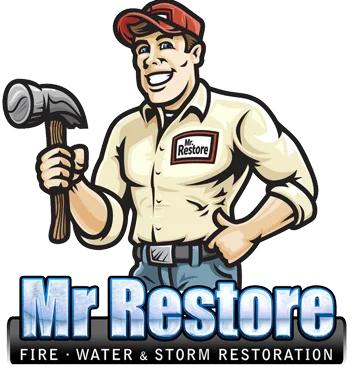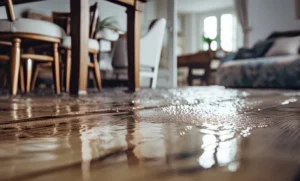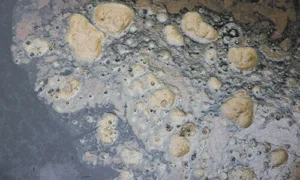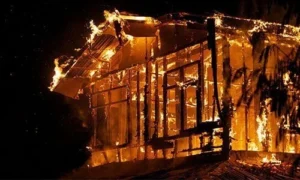When flooding strikes, the damage to your home and possessions can be devastating. Among the most distressing losses are important documents—birth certificates, passports, financial records, and irreplaceable family papers. However, with quick action and the right techniques, many water-damaged documents can be salvaged. This guide will walk you through the process of recovering your important papers after a flood.
Immediate Actions
Time is of the essence when dealing with water-damaged documents. Follow these steps immediately:
- Prioritize safety: Ensure the area is safe to enter
- Remove documents from water as soon as possible
- Gently remove excess water without rubbing or brushing
- Separate documents to prevent them from sticking together
- If possible, freeze documents to prevent further damage and buy time
Assessing the Damage
Before beginning the salvage process, assess the extent of the damage:
- Type of water (clean, gray, or black)
- Duration of water exposure
- Types of documents affected
- Presence of contaminants
Salvage Techniques for Different Document Types
Paper Documents
- Air drying:
- Lay documents flat on clean, absorbent paper
- Use fans to circulate air, but don’t aim directly at documents
- Replace absorbent paper regularly
- Dehumidification:
- Use dehumidifiers to remove moisture from the air
- Maintain humidity levels between 30-50%
- Freeze drying (for large quantities):
- Professional service that sublimes ice directly to vapor
Books
- Stand books on end, fan out pages
- Interleave every 20-50 pages with absorbent paper
- For valuable books, consult a professional conservator
Photographs
- Rinse with clean, cold water if dirty
- Air dry face-up on clean paper or screen
- Do not touch the image surface
- For historical or valuable photos, consult a professional
Professional Restoration Services
For extensive damage or highly valuable documents, consider professional “water damage restoration near me” services. These experts have specialized equipment and techniques, including:
- Vacuum freeze-drying
- Specialized cleaning and deodorizing processes
- Document reconstruction services
When searching for “contents restoration near me” look for companies with experience in document recovery.
Preventing Further Damage
To prevent further deterioration of your documents:
- Keep the environment cool and dry
- Use fans and dehumidifiers
- Handle documents with care, using clean, dry hands or gloves
Digital Preservation
After salvaging physical documents, consider digital preservation:
- Scan salvaged documents
- Store digital copies in multiple secure locations
- Consider cloud storage for added security
Dealing with Odors
Flood-damaged documents often retain unpleasant odors. To address this:
- Air out documents in a well-ventilated area
- Use activated charcoal or baking soda to absorb odors
- For persistent odors, consult professional restoration services
Handling Contaminated Documents
If documents were exposed to sewage or other contaminants:
- Wear protective gear (gloves, mask, eye protection)
- Consult with professional restorers for safe handling
- Consider photographing and disposing of heavily contaminated items
Legal and Financial Documents
For essential legal and financial documents:
- Contact issuing agencies for replacement procedures
- Check if digital copies are acceptable
- Notify relevant institutions (banks, insurance companies) of damage
Insurance Considerations
When dealing with flood-damaged documents:
- Document the damage with photographs
- Keep detailed records of salvage attempts
- Consult your insurance policy for coverage details
- Consider professional assessment for valuable documents
Long-term Preservation
After salvaging documents:
- Store in acid-free containers
- Keep in a cool, dry place
- Regularly check for signs of deterioration
- Consider lamination for frequently handled documents (but not for historical documents)
- Create digital backups and update them regularly
When to Seek Professional Help
While many documents can be salvaged with DIY methods, some situations call for professional intervention. Consider contacting “fire damage repairs near me” or specialized document restoration services when:
- Documents are extensively damaged
- Documents have historical or high monetary value
- Large volumes of documents are affected
- You’re dealing with specialized materials (e.g., blueprints, artwork)
Prevention for the Future
To protect your documents from future water damage:
- Store important documents in waterproof, fireproof safes
- Keep documents elevated off the floor
- Create digital copies of all important documents
- Consider using water-resistant document protectors
- Develop a disaster preparedness plan for quick document recovery
Conclusion: Preserving More Than Paper
Salvaging important documents after flooding is about more than just drying out paper—it’s about preserving memories, legal identities, and crucial information. While the process can be time-consuming and sometimes challenging, the effort is often worth it to recover irreplaceable documents.
Remember, while searching for “water damage restoration company near me” or “contents restoration near me” services is crucial for extensive damage, many documents can be saved with careful DIY efforts. The key is to act quickly, prioritize your most important documents, and not hesitate to seek professional help when needed.
With patience, care, and the right techniques, you can recover many of your important papers, preserving not just information, but also a sense of continuity in the face of disaster. Stay hopeful and persistent—every document saved is a small victory in your recovery journey.






